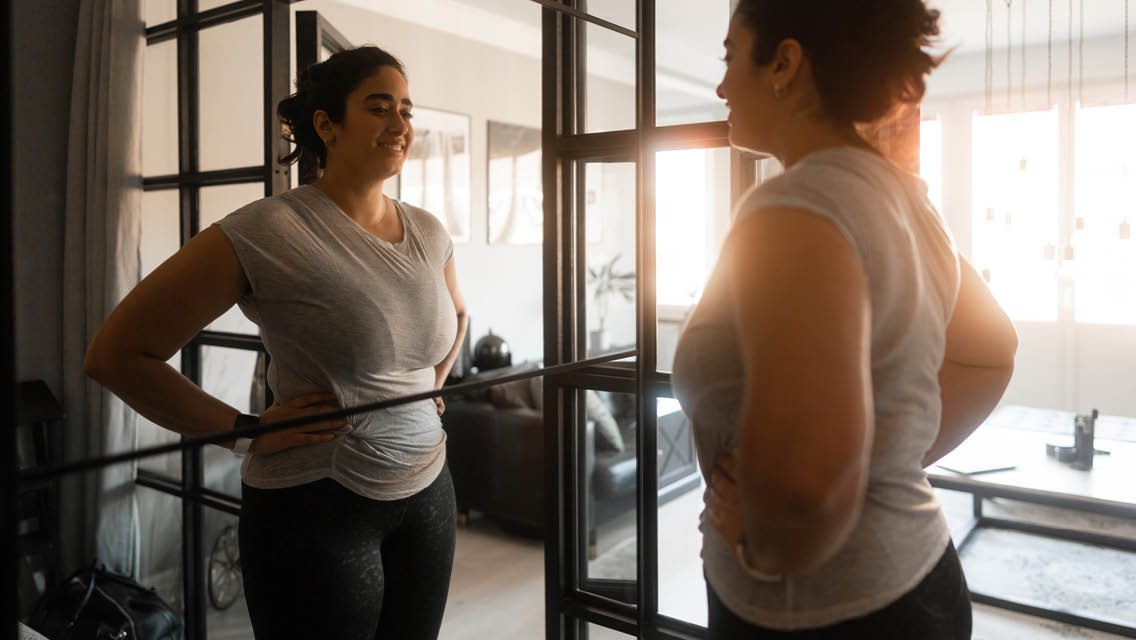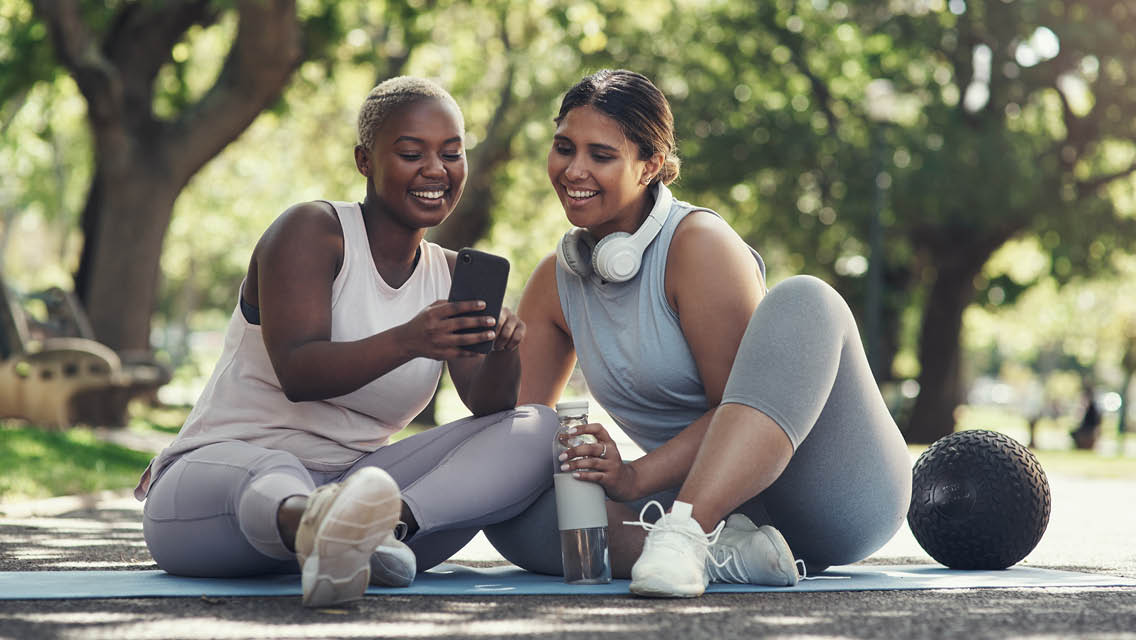My first memories of feeling a certain (not-good) way about my body date back to when I was 8 or 9 years old: A doctor pointing to a graph and expressing concern that I was in the 95th percentile for my weight. A friend assigning me the role in one of our backyard sketches of a doughnut-obsessed character whose physique resembled a “meatball with a mushroom on top.” A classmate pointing out that I had “alien” legs because my blue veins were visible.
It’s no surprise that Little Maggie, sensitive from the start, internalized these and countless other messages. She embarked on crash diets, ensconced herself in oversize clothing, and even trained herself to stop laughing in public — anything to become as small and inconspicuous as possible.
My self-perception was underscored by the same message from all around me — people on TV and in magazines, teachers, and family members all seemed to be saying they weren’t happy with their bodies. I was part of a strange and terrible club that gave me a sense of identity and belonging.
I hated my body — how it looked, moved, and functioned — for many years. Until, finally, I had had enough. I was tired of torturing myself, tired of self-hate.
But self-love not only felt out of reach, it wasn’t even part of my vocabulary. Instead, I wished to feel indifferent toward my physical self. To find a place where I could simply enjoy my life without thinking about my body.
In the early 2010s, body positivity and body neutrality were not the strong social movements they are today. When I made the decision to leave the community of self-loathing, I didn’t know what I was stepping into or who I was stepping toward.
So, I winged it. I closed the blinds of my apartment and started spending my alone time at home naked. I smiled at myself in every mirror I passed.
I quit the dark basement gym where I’d spent hours on the treadmill hidden behind a pillar and joined a CrossFit gym, where I learned how to lift weights, marking a pivotal shift in not only my strength but my sense of self. I took myself on “experience” dates to dance classes, hikes, trapeze lessons, and sessions at the trampoline park.
In the process, I landed in a new headspace that I can only describe as body joy — or perhaps joy embodied, for the first time, in my physical self. I didn’t care if I looked silly or if I didn’t nail a new skill on the first try. I experienced a sense of freedom in how I thought and how I moved that at once felt brand new and like déjà vu.
The strength of the memories from which my self-hate stemmed had repressed earlier memories of a time when I moved through the world not thinking twice about my body. A time when my body wasn’t the enemy — when my body wasn’t separate from my whole self. Years later, I reclaimed that feeling from early childhood.
I’m not totally over all my body stuff — I don’t know whether I ever will be. But when feelings of judgment and reproach come up, I now know I have the tools to reclaim my freedom from self-hate. A long walk listening to a great book, a bout of swinging some heavy kettlebells, jamming out in a Zumba class, and jumping on my mini trampoline are all ways to shake out the gross thoughts, reunite my body and spirit — and give me something to smile about.
Embracing body joy has made it possible to pursue performance goals and aesthetic goals in a way that doesn’t detract from my mental health. It’s also opened me up to pursuing no specific goals at all, instead reaping the many rewards of moving my body in ways that feel good and right for me in the moment.
It allows me to leave space for myself — and for others — to show up exactly as we are. In general, I’m far more interested in how I feel in my body than how I (or anyone else) feel about it.
The best part of body joy is that there are no rules. No requirements. No waiting until I look or function in a particular way. No waiting until I love myself or feel any which way about my body at all. Body joy is available to me right here, right now.





This Post Has 2 Comments
Thanks for sharing this lovely article. My path to body joy was a rocky one, too, but I am here. One experience rocketed me into a place of appreciation for my body: being evaluated for cancer. As I sat in the waiting rooms next to ladies who just wanted more time to be, I realized how foolish our society’s obsession with appearance is. Life is a precious gift. A body that functions well is a blessing. Thankfully, my health issues found a happy resolution. Ever since then, I do have moments when the negativity slips in, but then I remember what I learned in the cancer doctor’s office. I give thanks for this body and treat it well.
Your perspective is so refreshing. Can’t wait to see more from you! Keep the awesome content coming! 🌟